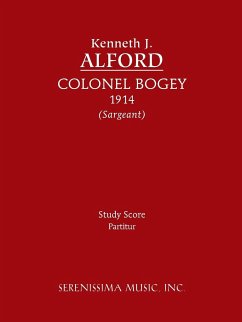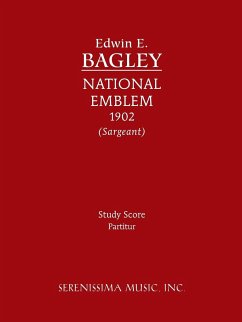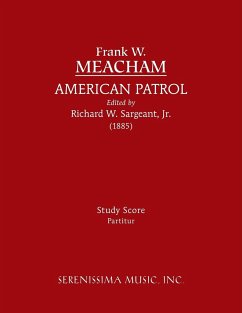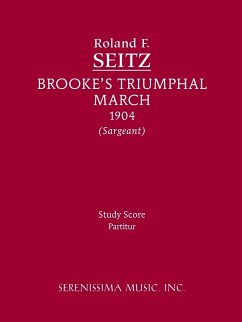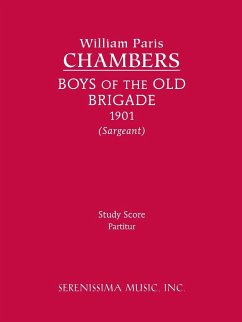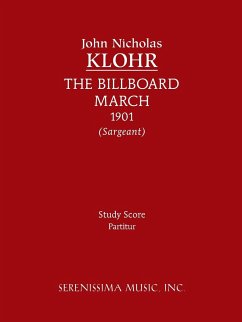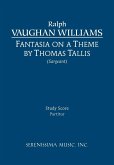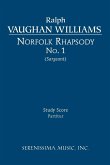One of the most popular marches ever written, Colonel Bogey was composed in 1914 by Lt. Frederick J. Ricketts (1881-1945) under the pseudonym Kenneth J. Alford. Born in London, Ricketts enlisted in the band of the First Battalion, Royal Irish Regiment at age fourteen. He later studied at the Royal Military School of Music, Kneller Hall. He served as bandmaster to several battalions, and was appointed Director of Music of the famed Royal Marines of Plymouth in 1930. He composed 19 known marches and several other light works under the pseudonym Kenneth J. Alford, but Colonel Bogey remains his most popular work. Opening with a characteristic two-note phrase (a descending minor third) it is said that the tune was inspired by a fiery and somewhat eccentric military man and avid golfer nicknamed "Colonel Bogey" who used to whistle the catchy notes instead of shouting "Fore" when about to drive a ball. By the early 1930s Colonel Bogey had sold well over one million copies, and became widely used for events both in the golfing world and the military world, as it is the authorized march-past in quick time for several Canadian battalions. Its popularity re-surged in the 1950s when the English composer Malcolm Arnold used it in his score of the film The Bridge on the River Kwai. This new edition by Richard W. Sargeant Jr. remains true to the composer's original 1914 scoring, without the bloated extra instrumentation which was added by publishers over the years. As with the others in this series, it is designed to offer band directors and others interested in this genre newly engraved authoritative editions prepared from the primary sources using the composer's original instrumentation, which is sometimes markedly different from that found in bands today.
Hinweis: Dieser Artikel kann nur an eine deutsche Lieferadresse ausgeliefert werden.
Hinweis: Dieser Artikel kann nur an eine deutsche Lieferadresse ausgeliefert werden.

